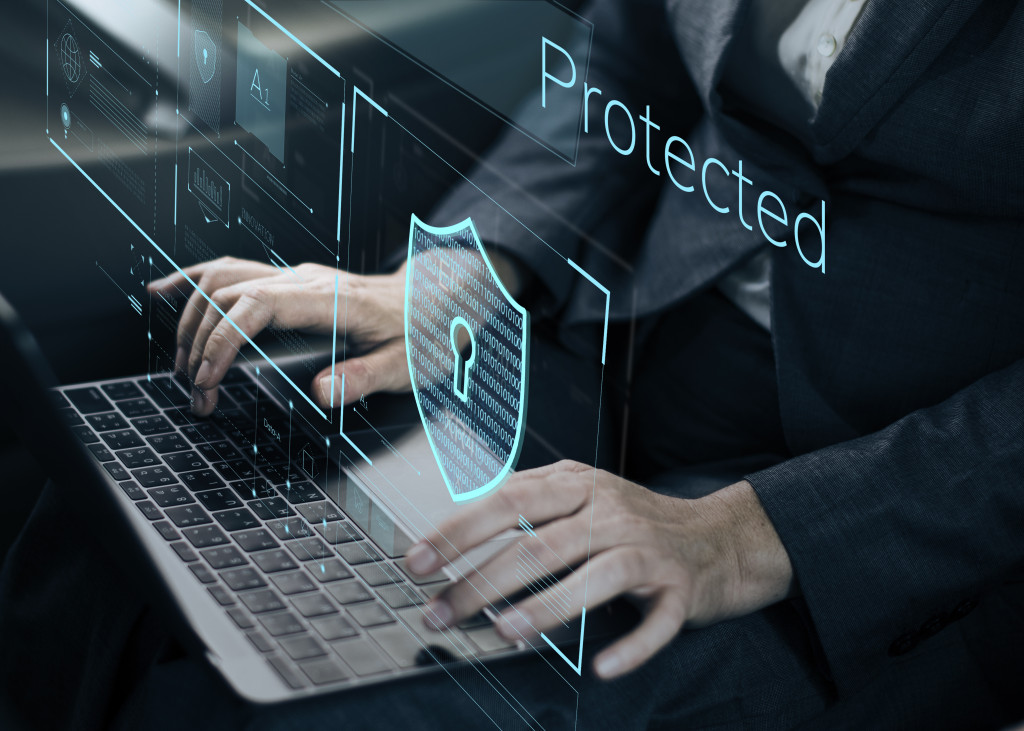One of the most crucial investments we’ll make for our business is security. And this isn’t just surveillance cameras and sturdy padlocks. Nowadays, we have to employ high-tech security measures because as technology improves, so does the tactics of a burglar.
They don’t even have to enter your premises to steal. Just a few vulnerabilities in your network can already supply them with things valuable enough to profit from. Hence, your cash and stocks aren’t the only ones that’ll need protection. Your data will need it as well, probably a stronger one, even.
Here are the technologies that can boost the security of your business:
1. Complex High-Security Locks
If your premises is situated in a commercial building, chances are you’re using the chains and locks provided by your landlord. Though those aren’t entirely a bad choice, replacing them will always be a cleverer decision. New locks may seem like an unnecessary expense, but security experts will likely recommend them nonetheless. Choose a complex high-security lock, which a lock-picker cannot break.
2. Alarm System
Have your security cameras connected to a monitored alarm system. That way, when burglars attempt to break in, the alarm will activate and immediately alert a response team. Alarm systems that are just loud noises may be a decent deterrent, but once burglars realize that it isn’t monitored, they may continue with their business and flee.
3. Smart Home Technology
If you’re selling expensive products, applying smart home technology to your premises is an invaluable investment. It will allow 24/7 monitoring, ensuring that your products and facility are safe at all times.
Home automation installation may require a hefty initial investment, but it will prove cost-efficient in the long run. Connected devices will help you reduce inefficient operations because most parts of the system can replace human jobs. Smart thermostat controls, for one, eliminates the need for a person to set HVAC thermostats manually to an energy-efficient level. As a result, lower electricity bills are guaranteed every month.
And of course, smart home systems are a formidable burglar deterrent. With your surveillance cameras connected to your smartphone, you can view real-time footage and lock down your entire premises when you catch a burglar red-handed.
4. Paper Shredder
This may sound old-school and unrelated to security, but shredding sensitive documents, such as invoices and customer quotes, is necessary over time. Such documents may contain a customer’s confidential information, which you cannot risk being in the hands of an identity thief.
Another perk of having a shredder is that you can use it to recycle old papers. You can send the shredded bits to a recycling facility, who will completely obliterate the material and turn it into another useful object.

5. Data Protection
Backing up your files in an external hard drive alone is no longer enough to keep your data safe. You can use Google Drive instead or take it up a notch by investing in a private cloud system.
Securing your data is crucial. According to a report by LifeHacker, 78% of large businesses experienced online security threats in 2013. But though your business is just a startup, it doesn’t mean hackers won’t find it interesting. The more customers and popularity you gain, the more hackers will deem you a worthy target.
Hence, aside from using a private cloud, invest in SSL encryption as well. This ensures that all transactions on your website are 100% protected. Choose the latest version of the encryption software to ascertain that all its features are updated.
6. Security Software Platform (For Mitigating Organizational Risks)
For offices situated in close-proximity buildings, the organizational risk is a serious threat. As such, employee and financial data are rather vulnerable to insiders.
Your company should monitor insider risks, as well as external threats such as natural disasters, terrorist attacks, cybersecurity threats, and intellectual property risks. To do this, invest in a security software platform that functions through an open-architecture platform. Such creates a common operating picture across all security systems, building management systems, and IT systems. In turn, it guarantees that your business can still operate as usual, even in the face of a security threat.
7. Consolidated Security Data
Companies can consolidate their security data management into a single user interface and cut down up to 66% of response time in turn. Also, they can prevent half of the false alarms. This streamlined intelligent security management system proves cost-efficient, promising a significant return on investment.
By having these technologies integrated into your business premises, you will guarantee the safety of your assets, including your employees and customers. After all, burglars can also hurt people in their way, so don’t fall short on providing protection.

